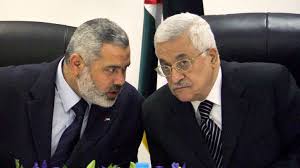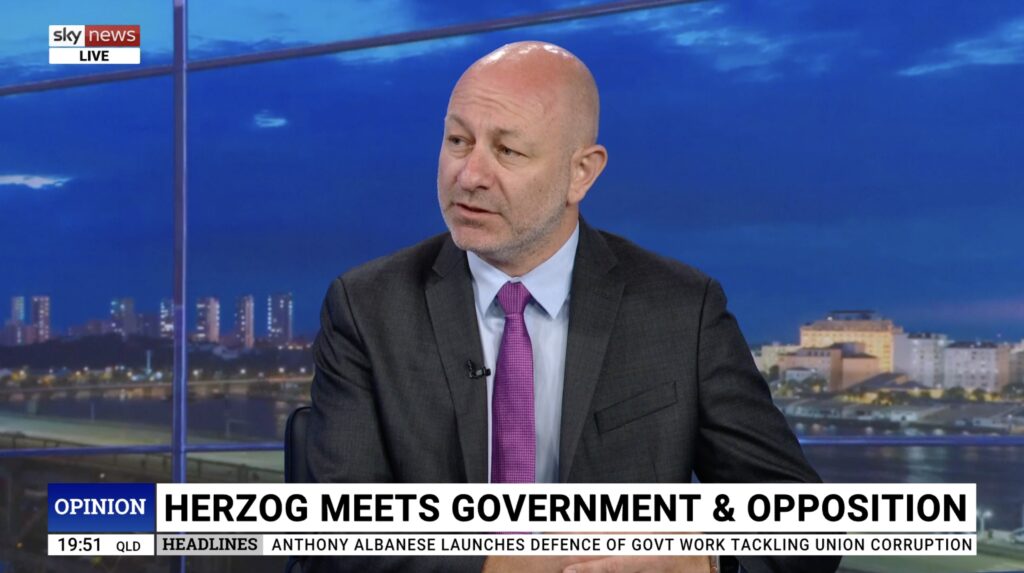UPDATES
Hamas still committed to Israel’s destruction, despite unity deal
June 3, 2014 | Sharyn Mittelman

A new Palestinian unity government was sworn in on Monday, following an agreement struck between Fatah and Hamas on April 23 to end years of division. The Palestinian Authority (PA) split in two in June 2007, after Hamas forces kicked Fatah out of the Gaza Strip in battles that left over 100 dead and 500 wounded.
Israel is reportedly disappointed that the US has said it will work with the Palestinian unity government, despite the fact that Hamas is considered a terrorist group in the US, and remains committed to Israel’s destruction through violent “resistance”.
PA President Mahmoud Abbas claims that the 17 ministers in the new unity government are technocrats who are not identified with any political party, and that the new government’s platform will declare acceptance of the terms of the Middle East Quartet – recognition of Israel, rejection of terror, and honouring previously signed agreements.
However, as Or Avi-Guy documented in a recent post, Hamas has said repeatedly, since the preliminary Hamas-Fatah agreement in late April, that it completely rejects the conditions set by the Quartet (and even some Fatah leaders have also been embracing violent rejectionism), and will never renounce violence or recognise Israel’s right to exist. Yet Hamas has stated that the unity government means “partnership in decision making and politics”, and as recently as Sunday the US said it was concerned by the role that Hamas would play in the new government.
If anyone is unsure as to whether Hamas still retains its commitment to Israel’s destruction through violent “resistance”, they only need to look at the comments reportedly made by Hamas in recent days.
For example, Hamas’ “former” Prime Minister Ismail Haniyeh told Al-Aqsa TV on May 29:
“We think that the path of negotiations and peace talks has reached a dead end and that the resistance [Intifada, 2000-2005], which liberated Gaza and defended Gaza, can liberate the West Bank and the rest of the Palestinian lands, Allah willing. Those who liberated Gaza, with the help of Allah, can liberate Jerusalem, the West Bank and the rest of Palestine.”
Moreover, on May 28 Palestinian news agency Ma’an quoted Haniyeh explaining the new “partnership”:
“The Prime Minister of the deposed [Hamas] government, Ismail Haniyeh, said tonight, Wednesday, that the [Fatah and Hamas] reconciliation does not signify [merely] the end of the split, but rather, a new period based on real partnership in decision-making and politics… Haniyeh said: ‘[Reconciliation] also means real partnership in the institution of leadership, adherence to the national principles, protection of the resistance project, protection of the weapon of resistance, and [joint] action with all our people for the release of the prisoners and Jerusalem.'”
And on May 28 Haniyeh explained to a crowd the reasons behind reconciliation with Fatah, according to Al-Hayat Al-Jadida:
“[Hamas Prime Minister] Ismail Haniyeh, told a large crowd of [Hamas] supporters in Rafah earlier yesterday that the reconciliation is meant to unify the Palestinian people against the main enemy, ‘the Zionist enemy,’ and to continue with the option of resistance and resolve.”
Given Hamas’ stance and its claim to have an equal “partnership in decision-making and politics”, it remains to be seen how the unity government can possibly be committed to the Quartet’s principles in practice, despite whatever verbal assurances may be offered.
Sharyn Mittelman
Tags: Palestinians





